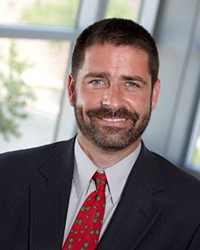Ian Bartrum

What’s the most important thing you are working on right now?
The most important piece I’m working on right now highlights an alternative to contemporary theories of constitutional originalism. Most modern originalists endorse some version of what is called “public meaning” originalism. Using this approach, constitutional judges should first determine the “fixed” semantic meaning of the text at the time it was ratified; then they should use those historical semantics to constrain their final constitutional judgments. I have long been a critic of this approach, primarily because the concept of “fixed” historical semantics is deeply problematic. In my current project, I recommend a different historical approach, which I call “Structural Originalism.” Instead of semantics, I suggest judges should look to intellectual history to determine what potential political problems the framer’s hoped to solve when they adopted a particular constitutional structure. They should then use this history to help resolve modern constitutional problems in ways consistent with the structure the framers adopted.
What have you read, listened to, or watched recently that has influenced you or your work?
I really believe I have the best job in the world; at least for me. I am inspired and motivated by a number of things—I’ll just mention two.
First, I have the opportunity as an academic to think about political challenges from a fairly detached, theoretical perspective. I can, and do, think about the long game in constitutional design, and being a professor allows me the time and freedom to research these ideas deeply, without getting too caught up in short term political battles.
Second, I love discussing these ideas in the classroom with students. There really is nothing more rewarding than seeing the light bulb go on over a student’s head as they come to understand a complicated subject. And I regularly find that, once that bulb has gone on, students are incredibly insightful and innovative in thinking about old problems in new ways. Virtually every article I have ever written has benefitted from discussions and criticism from my students.